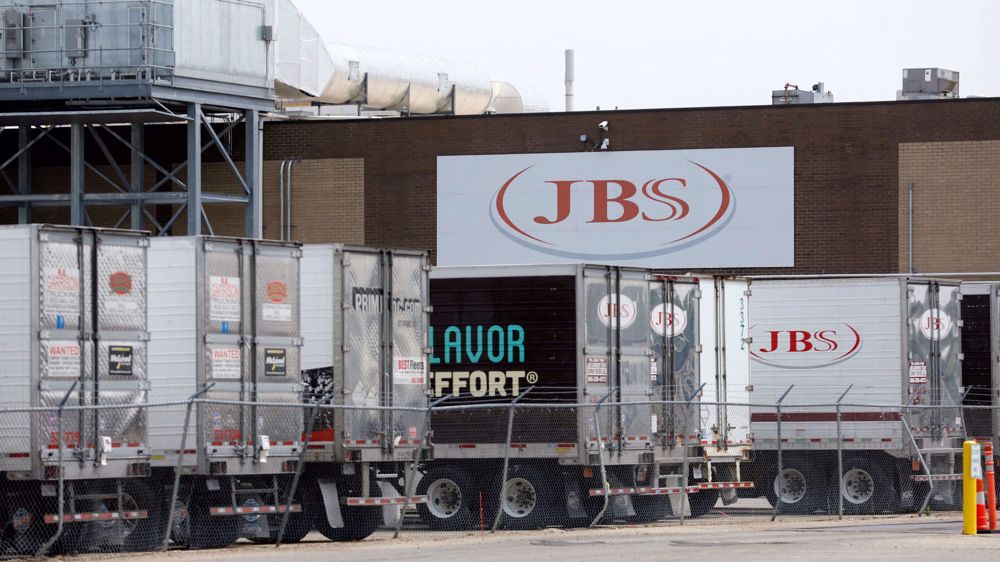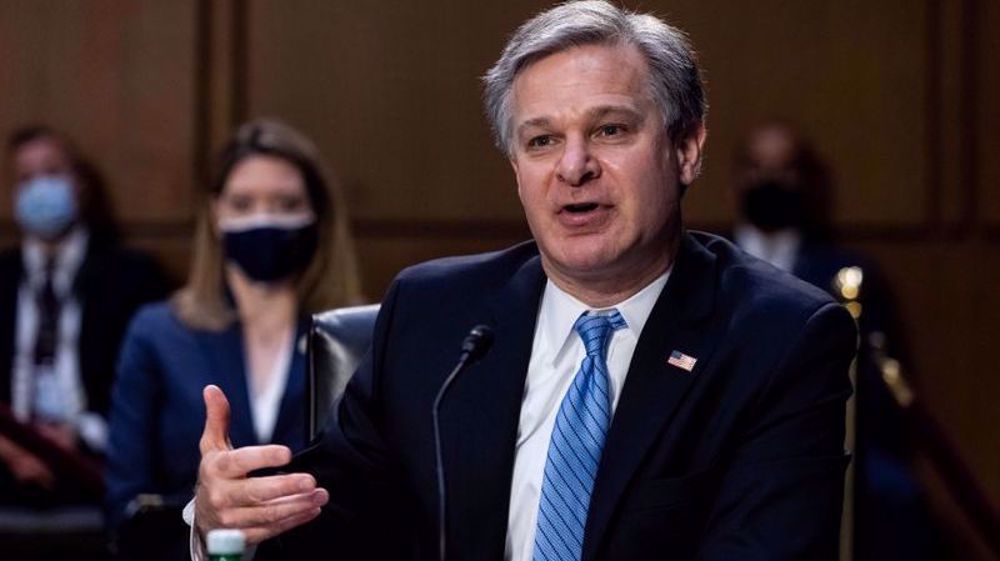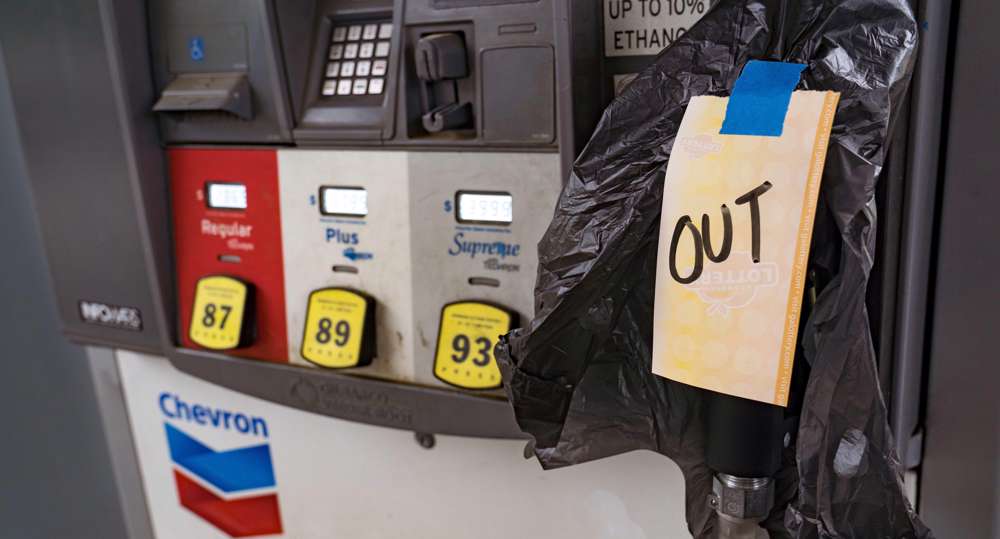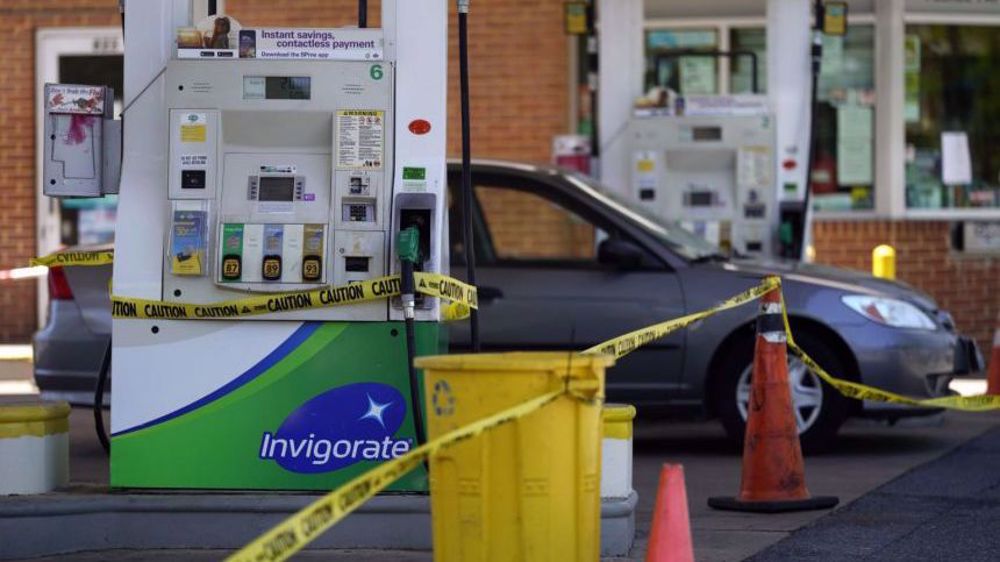Top US meat processor admits it paid $11m in ransom to hackers
Meatpacker JBS USA said it paid $11 million worth of bitcoin to cyber-criminals after a hack disrupted its North American and Australian operations.
The subsidiary of Brazilian firm JBS SA halted cattle slaughtering at all of its US plants after the cyberattack, which threatened to disrupt food supply chains and further inflate already high food prices.
The cyberattack followed last month’s hacking of Colonial Pipeline, the largest fuel pipeline in the United States. The attack disrupted fuel delivery and created a gas crisis in the US Southeast.
The JBS meat plants, producing nearly a quarter of America's beef, recovered faster than some meat buyers and analysts expected.
After the ransom payment, JBS chief executive Andre Nogueira said, "This was a very difficult decision to make for our company and for me personally. However, we felt this decision had to be made to prevent any potential risk for our customers."
The Brazilian meatpacker’s arm in the United States, which produces nearly a quarter of America's beef, lost less than one day’s worth of food production after the hack. JBS is the world’s largest meat producer.
A source familiar with the matter claimed last week, a Russia-linked hacking group was behind the JBS cyberattack.
The Wall Street journal reported on Wednesday that the JBS ransom payment was made in bitcoin.
The Justice Department on Monday recovered some $2.3 million in cryptocurrency ransom paid by Colonial Pipeline Co, cracking down on hackers who launched the attack.
Earlier this week, US officials warned of a growing threat of cyberattacks against American companies and government entities as ransomware and hacking attacks surge.
US commerce secretary Gina Raimondo said the threat is "here to stay" and may even worsen, appealing for vigilance from the private sector in the face of increasingly serious cyberattacks.
US energy secretary Jennifer Granholm also admitted that American adversaries have the ability to shut down the country's power grids.
"I think that there are very malign actors who are trying even as we speak. There are thousands of attacks on all aspects of the energy sector and the private sector generally," she said.
FBI Director Christopher Wray has compared the ransomware hacks on high-profile American projects like Colonial Pipeline, JBS USA and SolarWinds to the September 11, 2001, terrorist attacks in which about 3,000 Americans lost their lives.
“There are a lot of parallels, there’s a lot of importance, and a lot of focus by us on disruption and prevention,” Wray told The Wall Street Journal last week. “There’s a shared responsibility, not just across government agencies but across the private sector and even the average American.”
The FBI said earlier this month that the agency was investigating about 100 different types of ransomware.
There are growing concerns in the US over cybersecurity holes in America's energy infrastructure amid reports revealing that the Biden administration was planning a series of cyberattacks against Russia.
The New York Times reported in March that a series of clandestine actions across Russian networks that were intended to be evident to President Putin and his intelligence services and military but not to the wider world were planned.
Houthi: Yemen’s hypersonic missiles have surprised enemy
Israel makes deepened incursion into Lebanon despite truce
IRGC intelligence forces capture agent linked to foreign espionage service
VIDEO | Palestinians in Yarmouk Camp cling to hope and determination
Israel preparing to stay in southern Lebanon after ceasefire: Report
Israeli pressure on Hamas ‘hardly helped’; swap deal necessary: Ex-Mossad chief
Far-right Israeli minister Ben-Gvir again storms al-Aqsa Mosque
Iran: Israel’s attack on journalists’ vehicle in Gaza amounts to ‘war crime’















 This makes it easy to access the Press TV website
This makes it easy to access the Press TV website